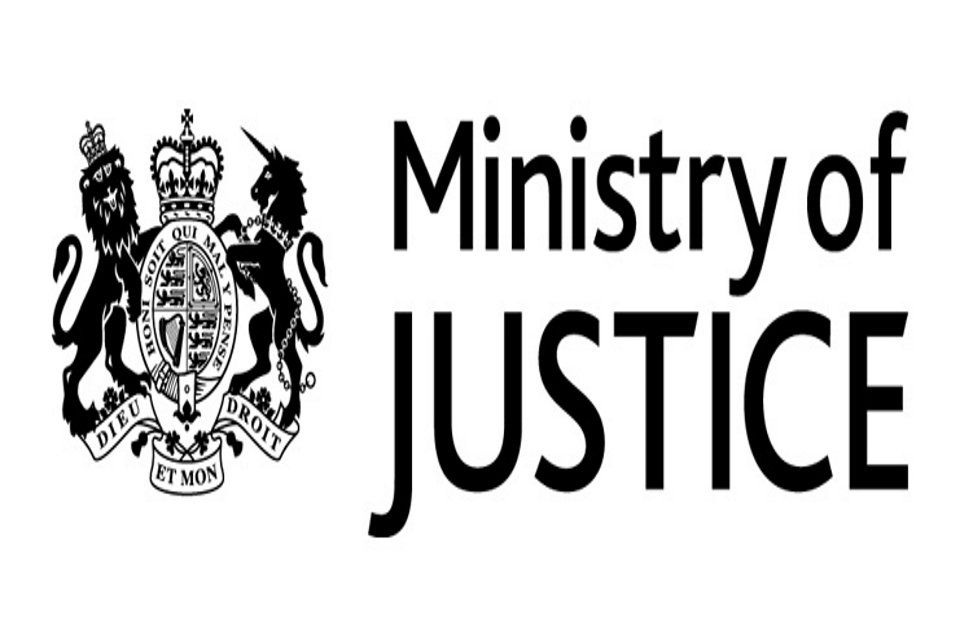DEFENCE ATTORNEY LAWYER;
How are an Defence Attorney and Lawyer Different?
As you may have noticed, the terms lawyer and defence attorney are often used interchangeably. This might seem confusing to you, and you may be wondering whether it is appropriate to use both labels to refer to the same type of legal professional.
Now, traditionally, an defence attorney is a person that has graduated law school, passed the bar exam, and is licensed. A lawyer would be someone that has graduated law school but has not been admitted to practice.
Which is higher lawyer or attorney?
A lawyer is an individual who has earned a law degree or Juris Doctor (JD) from a law school. The person is educated in the law, but is not licensed to practice law in another state. An defence attorney is an individual who has a law degree and has been admitted to practice law in one or more states.
Are all lawyers defence attorneys?
It is helpful to remember that all defence attorneys are lawyers, but not all lawyers are defence attorneys. The major difference is that attorneys can represent clients in court and other legal proceedings, while lawyers cannot.
Law is a highly competitive and challenging profession. But it is very rewarding as well. US lawyers often dream of practising in the States and countries like London. Lawyer in the US and the UK including how an US lawyer/foreign-trained lawyer or a student with an US overseas degree can full fill his dream of practising in the US or the UK.
What does the Defence lawyer do?
A criminal defence attorney is responsible for putting together an effective defence and developing a winning strategy for their clients. As the accused's advocate and drafter, he must prepare, file, and argue on their behalf. Negotiating a plea bargain with the prosecution is part of a lawyer's job description.
The job of a criminal defence lawyer is to select the best criminal defence attorney tactics after reviewing a case's facts and circumstances. Every case is unique and the best criminal defence attorneys weigh all factors to develop a case theory and criminal defence strategy most likely to succeed. Criminal defence strategies are legal arguments and actions taken to get criminal charges dismissed and secure a defendant’s freedom. They involve exposing legal flaws and doubts about any crime elements the prosecutor must prove beyond a reasonable doubt in order to win a conviction. If you’re facing prison or harsh penalties, it is key to consult a top criminal lawyer. No matter how smart you are, it is nearly impossible to competently defend yourself.
What are the 6 legal defences?
These are six conventional approaches to defending people from criminal prosecution. Affirmative Defence. Coercion and Duress. Abandonment and Withdrawal. Self-Defence. Defence-of-Others. Violations of Constitutional Rights.
Getting an Attorney to Handle Your Criminal Case? Within the complex criminal justice system, a defence attorney serves as the defendant's guide, protector, and confidant. (At least that's how it's supposed to be.) Defence attorneys are usually grouped in two camps: court-appointed attorneys paid by the government and private attorneys paid by the defendant. Some criminal defendants can afford to hire a private criminal defence attorney. For those who cannot afford an attorney (approximately eighty percent of all criminal defendants), the court may appoint counsel to represent the defendant (assuming certain qualifications are met). These court-appointed attorneys are either public defenders who are on government salary, or they are so-called "panel attorneys," local attorneys chosen from a panel. A small fraction of criminal defendants (approximately two percent) represent themselves and are referred to as "pro se" or "pro per" defendants.
What Does a Criminal Defence Attorney Do? Criminal defence attorneys (private and court-appointed) research the facts, investigate the case against their clients, and try to negotiate deals with their adversaries (prosecutors). These deals might include reduced bail, reduced charges, and reduced sentences. Because of a number of factors—political and public pressure, overcrowded jails, overloaded court calendars—deal-making has grown in importance and has become an essential element in unclogging the criminal justice system. Criminal defence attorneys also examine witnesses, help formulate a plea, analyse the prosecutor's case, assess the potential sentences (and the likelihood of a particular judge awarding such a sentence), review search and seizure procedures, question witnesses, and gather evidence. Defence counsel can also advise on potential immigration consequences or other consequences of a plea, conviction, or criminal record. Defence counsel also provide more personal services by giving the defendant a reality check as to the possible outcomes and by helping the defendant to deal with the frustrations and fears resulting from being thrown into the criminal justice system. And of course, if no plea deal can be made, the defence lawyer represents the defendant at trial.
Cost of Legal Representation A huge factor when it comes to legal representation is the defendant's financial status and whether the defendant can afford private counsel. Private criminal defence attorneys charge either on an hourly basis (expect to pay £90.00 pound an hour or higher) or by a fixed or set fee. They are prohibited from charging contingency fees, which are payments that depend on the outcome of the case. If the defendant is indigent (cannot afford private counsel), the court may appoint a government-paid public defender or panel attorney. Some—but not many—folks have enough money so that paying for a lawyer isn't a financial strain. But arranging for legal representation often isn't as straightforward for those who fall in between these groups of people. The bottom line for judges is that the right to free (government-paid) defence counsel generally kicks in whenever an indigent defendant faces a jail or prison sentence. If there is no possibility of incarceration—for example, a judge states on the record that she will not sentence the defendant to jail time—then the defendant might not be entitled to free counsel (depending on state law). Note that the right to free representation does not mean a right to the lawyer of choice. A defendant who's been appointed counsel normally doesn't get to pick and choose in the way that a paying defendant does.
Is a Private Attorney Better Than a Court-Appointed Attorney? Defendants sometimes believe that private attorneys possess a distinct advantage over the overworked public defender's office or panel attorneys who are paid a minimum fee. But do private attorneys provide better representation than court-appointed government-paid defence counsel? Many private attorneys are former prosecutors or public defenders. Based on studies that evaluate the outcomes of having a private versus court-appointed attorney, data seems to indicate that the results for defendants are often the same. For example, one study indicated that defendants represented by private counsel and public defenders fared similarly in conviction rates and sentencing (although those represented by panel attorneys fared worse). Such statistical evidence is not always reliable or clear because of complicating factors. For instance, clients represented by private counsel often have short or no prior criminal records, while indigent defendants are twice as likely to be repeat offenders. What is also unclear—and what creates one of the biggest uncertainties of the criminal justice system—is whether private attorneys can negotiate better plea deals than court-appointed counsel. Ultimately, the experience, skills, and commitment of the particular attorney at hand—regardless of whether he or she is a public defender, panel attorney, or private lawyer—are the best indicator of the quality of the representation.
Self-Representation (Pro se) What is clear is that being represented by a lawyer is almost always the best option. Nevertheless, some criminal defendants represent themselves. The decision of whether a defendant can self-represent is ultimately made by the judge, not the defendant. The judge is required to determine the defendant's competency. That's because a defendant who cannot provide a competent defence cannot get a fair shake, even if the defendant is adamant about not accepting the services of a court-appointed attorney. When determining whether a defendant can go pro se, a judge will consider factors such as: the seriousness of the crime the defendant's language skills and education whether the defendant understands the nature of the proceedings, and whether the defendant is knowingly giving up his right to counsel.
JUSTICE DEPARTMENT COURTS

Department of Justice
This guide will help you to understand.
Courts and Tribunals
Northern Ireland Courts and Tribunals

DOJ Elliott Khan receives FOI Certificate of Compliance for 2021
This guide will help you to understand.

Ministry of Justice
This guide will help you to understand.
Ministry of Justice (United Kingdom) - Wikipedia

Department of Justice Values
We are transparent, take ownership for our actions and acknowledge the responsibility we have to our colleagues, stakeholders and clients.

Department of Justice Values
We treat our colleagues, stakeholders and clients with courtesy and value the diverse experiences of others.

THE hands that help the courts to balance the scale of justice
Trial court knowhow helps lawyers understand basics of justice delivery
Performance.gov DOJ
This guide will help you to understand.
Agency Plans and Reports
Agency's Strategic Plan

Performance DOJ usa.gov
This guide will help you to understand.
Department of Justice (DOJ or the Department) is headed by the Attorney General of the United States.

The United States Department of Justice
This guide will help you to understand.
Trial court knowhow helps lawyers understand basics of justice delivery.
The United States Department of Justice - This Week at Justice - May 27, 2022

DEFENCE ATTORNEY LAWYER,
DEPARTMENT OF JUSTICE
JUSTICE DEPARTMENT COURTS
(REGISTERED AND LICENSED TO)
DOJ JUSTICE DEFENCE ATTORNEY LAWYER,
UNITED KINGDOM DISTRICT OF (W) EUROPE,
BROOKWATER DRIVE,
SHIPLEY,
BD18 1PY,
WEST YORKSHIRE
(SINCE 2012)
Justice.gov
barackobama.com
justice.gov